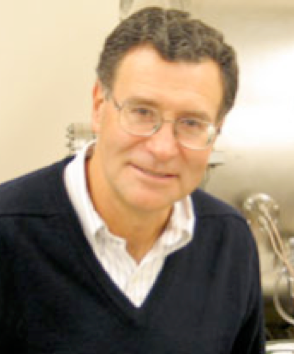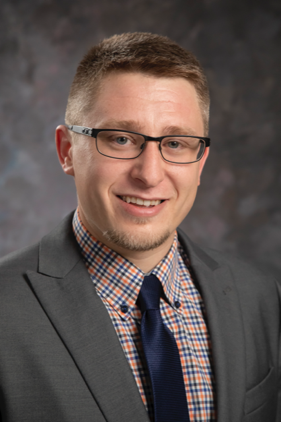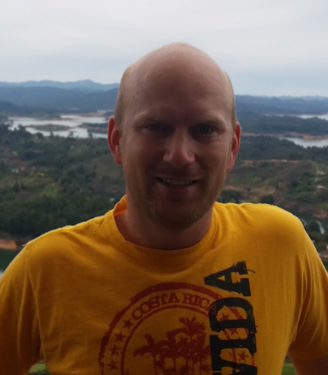R.B. Torbert, K.J. Genetreti, M.R. Argall
University of New Hampshire and Southwest Research Institute
Friday, November 8, 2019
3:00pm
First part : Overview of MMS Mission and Insights into Symmetric Reconnection in the Earth’s Magnetotail. ( Torbert)
With unprecedented particle distribution time resolution and electromagnetic field accuracy, The Magnetospheric Multiscale (MMS) mission is revealing new aspects of many plasma physics phenomena. In particular, it has encountered many ion and electron diffusion regions where magnetic reconnection Is underway. The first part of this talk will discuss what the MMS mission has learned about these diffusion regions in the Earth’s magnetotail, where either side of the inflow into these regions consists of plasma with similar plasma properties.
Second part : MMS insights into asymmetric reconnection at the Earth’s magnetopause (Genestreti )
The second part of this talk reviews discoveries made by MMS in asymmetric diffusion regions at the magnetopause, where reconnection occurs between the shocked solar wind and the magnetospheric plasma. Aspects of asymmetric reconnection are compared to and contrasted with symmetric reconnection.
Third part: MMS and turbulence throughout the magnetosphere, magnetosheath, and solar wind (Argall)
The third part of the talk presents MMS observations of turbulence. Examples demonstrate an integral relationship between turbulence and reconnection in the magnetotail, magnetopause, magnetosheath, bowshock, and solar wind. The temporal and spatial resolution of MMS Multi-spacecraft observations highlight new insights into energy cascade and the validity of the Taylor hypothesis.

Dr. Roy B. Torbert, Ph.D.
Professor of Physics, University of New Hampshire, Durham, NH
Bio: Prof. Roy Torbert has over 45 years of experience in space physics research in experimental programs focusing on space plasma phenomena in the Earth’s magnetosphere, including aurora, reconnection, and active experiments in space. Experimental efforts include development of successful instruments for sounding rockets, Wind, Polar, Cluster, Equator-S, RBSP, and MMS. Prof. Torbert is currently the lead Co-Investigator for the MMS FIELDS suite, and serves as Deputy PI for MMS. He is the PI for the Electron Drift Instrument on Cluster. His experimental programs include: PI for CRIT series of NASA sounding rockets; PI for Auroral Turbulence series of NASA sounding rockets; PI for EDI (previously Co-I) on Cluster; Co-I for EMFISIS on RBSP; Lead Co-I for FIELDS on MMS.

Dr. Kevin J. Genestreti, Ph.D.
Research Scientist, Southwest Research Institute, Durham, NH
Bio: Dr. Kevin Genestreti is a Research Scientist at the Southwest Research Institute in Durham, NH. His current research is on electron-kinetic aspects of magnetic reconnection in collisionless space plasmas, which he performs using in-situ observations from Magnetospheric Multiscale (MMS) complemented by particle-in-cell simulations. Genestreti obtained his B.S. in Physics from the University of New Hampshire (2008-2012), where he studied ion-kinetic aspects of asymmetric magnetopause reconnection using Cluster data. Genestreti obtained his Ph.D. in Physics from the University of Texas at San Antonio / Southwest Research Institute (2012-2016), where he studied the 3-d spatial characteristics of symmetric magnetotail reconnection using Cluster, Geotail, and THEMIS data. Since 2016, Genestreti’s research has focused primarily on particle acceleration and energy conversion in the electron diffusion region of magnetic reconnection. Additionally, Dr. Genestreti studied thermal structures in the Earth’s plasmasphere, substorm processes at Earth & Mercury, and has contributed to the pre/post-flight calibration of in-situ space plasma instruments such as Cluster-CODIF, MMS-HPCA, MMS-FPI, RBSP-HOPE, etc.

Dr. Matthew R. Argall, Ph.D.
Research Scientist III, University of New Hampshire, Durham, NH
Bio: Matthew Argall received his B.S. in Math and Physics from Augsburg College in Minneapolis, MN, and an M.S. in Physics from the University of New Hampshire. There, he developed, installed, and repaired search coil magnetometers in remote locations such as Greenland, Svalbard, and Antarctica. Dr. Argall then traveled to Costa Rica where he became certified and taught English as a foreign language before becoming an Interim Professor of Physics at the Universidad de Costa Rica. He returned to UNH after three years to obtain his Ph.D., with a thesis on estimating proximity to the asymmetric reconnection X-line. He has since expanded his investigations of magnetic reconnection to include applications of machine learning, waves, and turbulence. As part of the FIELDS team on MMS, he develops the Electron Drift Instrument and fluxgate-search coil merged (FSM) datasets. EDI samples ambient electron flux at 1 kHz, allowing for direct observations of wave-particle interactions, while the FSM product facilitates studies of turbulence by offering a continuous spectra from DC to 8 kHz. Dr. Argall is also developing two instruments: a Faraday Rotation Ammeter and a Rogowski Coil, both to make direct measurements of electrical currents in space.